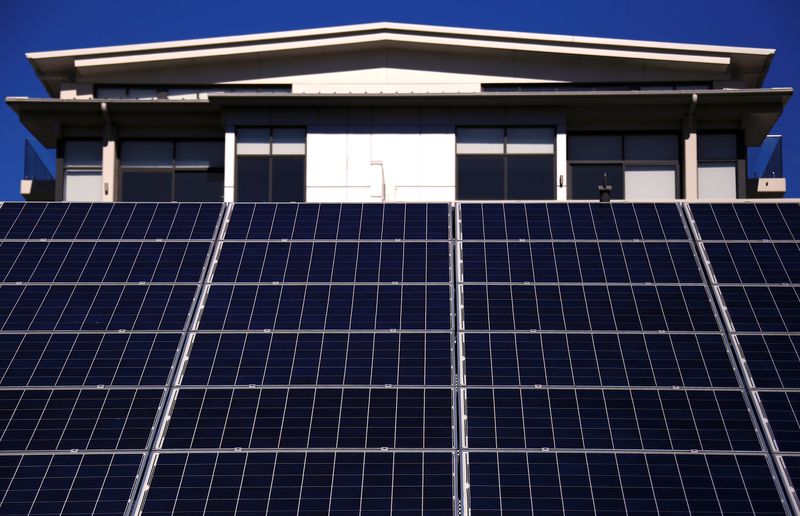By Lewis Jackson
SYDNEY (Reuters) - The long-term value of hotly contested $10.6 billion takeover target Origin Energy has been muddied by a government plan to accelerate the rollout of renewable energy, announced just hours before a key shareholder vote.
The Australian government announced plans on Thursday to underwrite 32 gigawatts (GW) of new wind, solar and battery projects. Two energy experts told Reuters it could spur investment worth at least A$30 billion ($20 billion). The announcement contained no figures.
The plan to reshape the electricity market, where Origin is the second largest power producer, has scrambled the outlook for electricity prices, future investments, and existing plants.
It was released just before Origin announced a last-minute revised offer from Brookfield and EIG as it became clear investors would reject the consortium's earlier bid. Origin's board delayed the vote to Dec. 4 to consider the bid and the impact of the 32 GW scheme.
The uncertain outlook for Origin under the government's new policy has made some investors say it makes more sense than ever to sell to the suitors, but top shareholder AustralianSuper is adamant it wants to hold on.
More renewables will ultimately lower electricity prices, squeeze margins and shorten the life of Origin's existing coal and gas assets, said Max Vickerson, an equity analyst at Morgans.
"This move accelerates the destruction of value at the legacy assets owned by Origin and AGL," he said, referring to Origin's rival AGL Energy (OTC:AGLXY). "Cheaper wholesale prices are not a good thing on balance for Origin."
However, the potential for new investment via the government's scheme undercuts Brookfield's argument that Origin and Australia needed its deep pockets to decarbonise quickly, Vickerson said.
Brookfield has not commented publicly on the scheme, but a person close to the asset manager said the revenue guarantee for eligible projects would diminish the benefits of having a large customer base for a big power producer, like Origin.
Should others take up the government's underwriting offer, Origin could potentially save billions by letting others build new wind and solar farms and simply contracting power for its 4.2 million customers, said Tom Leske a director at Churchill Capital, which advises event-driven hedge funds.
"But ultimately there's so much variability about what the economic outcome is going to be," he said.
Pension giant AustralianSuper has argued Origin's stake in fast-growing British renewable energy company Octopus Energy, gas assets and millions of customers position the company well for the energy transition.
The government's new scheme only strengthens the fund's conviction about Origin, according to a person familiar with AustralianSuper's thinking.
However, Simon Mawhinney, chief investment officer at fund manager Allan Gray, which owns a roughly 3% stake in Origin, said the government's plan appears likely to push down returns.
More uncertainty only strengthens the case for taking the A$9.43 on offer today, he said.
"The price was fair given our perception of the risk and rewards before the announcement. This adds a lot of uncertainty."

"It's probably good for consumers and the environment and bad for everyone else," he said.
($1 = 1.5366 Australian dollars)